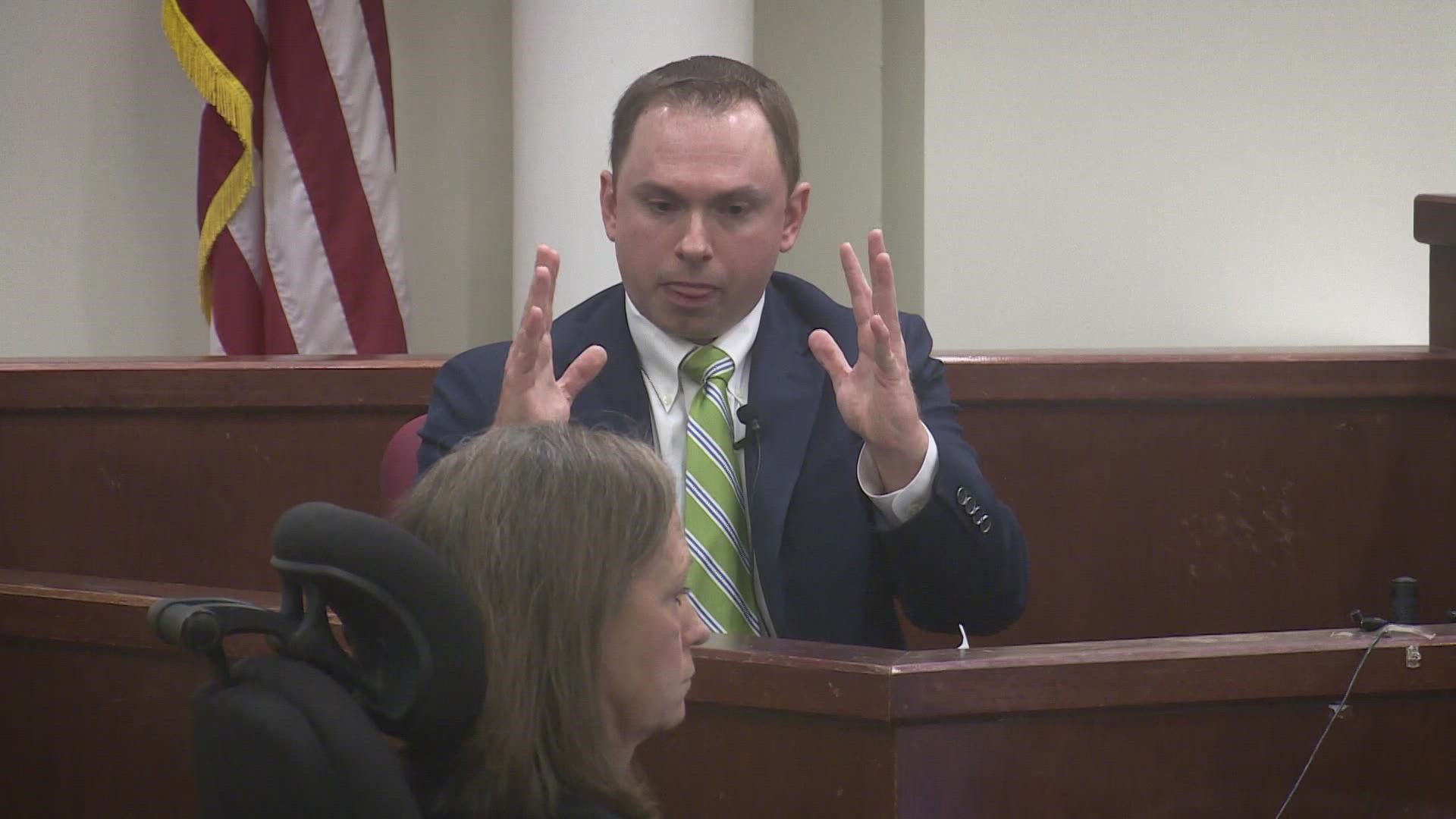DALLAS — Former Fort Worth police officer Aaron Dean was charged with murder in the 2019 death of Atatiana Jefferson. But when the jury returned with a verdict Thursday, they found him guilty of manslaughter.
What's the difference? And how is a jury able to return a verdict for a lesser charge?
That process started Wednesday, when Judge George Gallagher gave the jury their charges, or instructions, on what to consider in the case. Gallagher told the jury they could consider a lesser charge -- if they believed the elements of the case applied.
The lesser charge detailed by Gallagher was manslaughter, a second-degree felony. Murder is a first-degree felony.
Dean fatally shot Jefferson at her home in east Fort Worth in October 2019. Jefferson's neighbor had called police to check on her when he noticed her front door was open. Dean and another officer responded to the call as an open structure call, and Dean, while checking on the outside of the house, shot Jefferson through her bedroom window.
Dean testified that he saw someone point a gun at him from the other side of the window, and his attorneys argued the shooting was self-defense.
Prosecutors have argued that Dean violated his training and general orders and did not identify himself as a Fort Worth police officer.
Dean, who resigned from the police department shortly after the shooting, was indicted on a charge of murder. It's not uncommon for a judge, while reading charging instructions to a jury at trial, to detail "lesser includeds," or charges less than the indictment. In this case, the "lesser included" was manslaughter.
What's the difference between manslaughter and murder?
Here's a quick explainer, according to the Texas Penal Code:
• A criminal homicide is charged as manslaughter when a person "recklessly causes the death of another individual," according to the Texas penal code. The charge is a second-degree felony, punishable by two to 20 years in prison and up to a $10,000 fine. A prosecutor does not have to prove intent or premeditation to earn a manslaughter conviction.
• Manslaughter is a lesser charge than murder, which is a first-degree felony. According to the penal code, murder is committed when a person "intentionally or knowingly causes the death of an individual," or "intends to cause serious bodily injury and commits and act clearly dangerous to human life that causes the death of an individual." Murder is punishable by 5-99 years, or life, in prison.
• Manslaughter is a stiffer charge than criminally negligent homicide, a state jail felony that is committed when a person "causes the death of an individual by criminal negligence," according to the penal code. Criminally negligent homicide was not included as a lesser charge in Gallagher's jury instructions Wednesday.

